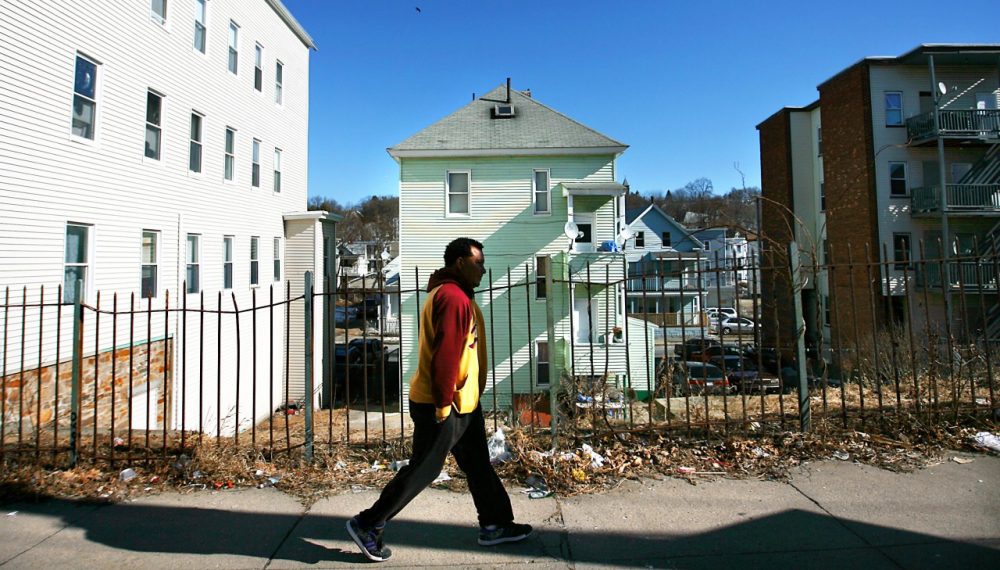Advertisement
Is 'Unnovation' The Key To Helping Financially Struggling Cities?
Resume
When you think about innovation, what comes to mind?
Do you immediately envision scientists in lab coats and lines of computer code? The latest electronic gadget, app or mobile device? An Innovation District start-up working on a pharmaceutical breakthrough or new social media platform? The next Facebook! The next Twitter!
That kind of innovation — the high-tech kind — is often pointed to as the way to boost local economies. It's why many communities create start-up incubators and celebrate when companies such as Google or Microsoft come to town.
But what if that's the wrong way to think about economic revival, especially in cities and towns really struggling financially, like Lowell and Holyoke and New Bedford? Why not instead — and this may sound counter-intuitive — turn to to farming or fishing or factory work for economic revitalization? Hands-on trades that made many cities so strong a century or so ago?
In other words, why don't we "unnovate?"
WBUR's Sacha Pfeiffer explores the concept of "unnovation."
Guests
Ben Schreckinger writes for The Boston Globe. He tweets @SchreckReports.
Catherine Tumber, historian, journalist and visiting scholar at Northeastern University. She's also the author of "Small, Gritty, and Green: The Promise of America's Smaller Industrial Cities in a Low-Carbon World."
Molly Anderson, Partridge Chair in Food and Sustainable Agriculture Systems at College of the Atlantic in Bar Harbor, Maine. She helped write The New England Food Vision report.
More
The Boston Globe: Unnovation Can Move New England Forward
- "If New England is going to take full advantage of the opportunities before it, the region needs to embrace another image of the future, one of 'unnovation' — economic strategies that are rooted in our past and can complement the gee-whiz innovation celebrated in Boston."
Food Solutions New England: A New England Food Vision
- "A New England Food Vision describes a future in which New England produces at least half of the region’s food—and no one goes hungry. It looks ahead half a century and sees farming and fishing as important regional economic forces; soils, forests, and waterways cared for sustainably; healthy diets as a norm; and access to food valued as a basic human right."
MassINC: Rundown Of The Gateway Cities Allocations In Economic Development Bill
- "The recently passed economic stimulus package totaling $46 million is now on its way to Governor Patrick’s desk. Aside from the $16 million Gateway Cities Transformative Development Fund, the addition of $10 million to the states’ Brownfield Redevelopment Fund, and $20 million into the Housing Development Incentive Program, the bill included many other appropriations that will have a direct impact on the Gateway Cities."
Taunton Daily Gazette: Our View: Stimulating The State's Economy
- "In our changing post-industrial economy, old mill cities like Fall River, New Bedford and Taunton have struggled to replace the jobs and industries that have headed to other parts of the nation and the world."
This segment aired on August 13, 2014.
